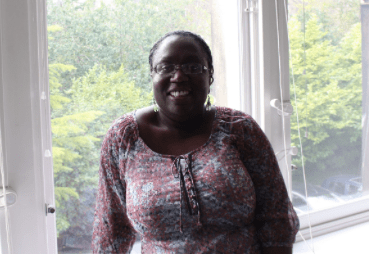Afua Twum-Danso Imoh, Associate Professor in Global Childhoods and Welfare reflects on using a period of research leave to focus on thinking and writing about the dominant critiques of children’s rights in the Global South.

I was awarded a University Research Fellowship for the 2022-2023 academic year for the purpose of writing my first academic monograph which had already been contracted by the University of Bristol Press in 2021. The book, entitled, Turning Global Rights into Local Realities: Realising Children’s Rights in Ghana’s Pluralistic Society, is based on 21 years of research that I have conducted primarily in Ghana which has largely explored the various ways dominant discourses of children’s rights, best reflected by the 1989 United Nations Convention on the Rights of the Child (adopted by the UN General Assembly in 1989), have intersected with local realities.
I used the fellowship to:1) re-analyse data from five specific empirical research studies that I have conducted; 2) collect data from government officials and civil society representatives in Ghana for one specific chapter; and 3) engage with various bodies of literature relevant to the subjects being discussed within the volume.
Once I had done this I proceeded to draw on the data (new and re-analysed) as well as themes emerging from the literature to further develop the concept of a continuum which I have been developing in the past few years due to questions I have about existing dominant critiques of children’s rights in the Global South which often emphasise the inapplicability and imposition of global children’s rights in contexts in the South without sufficiently considering the transformations that these societies themselves have been undergoing for centuries and the differential impact of this social change on different demographic groups.
This concept of a continuum is central to the main argument that I make in the book, and I sought to use the data I have collected over the years to illuminate how this continuum works within the context of children’s lives in Ghana.
I thoroughly enjoyed the year away from ‘normal’ university duties relating to teaching and admin. Although still working to deadlines (a long-term one set by the University of Bristol Press and lots of mini deadlines set by myself), I was very much working at my own pace. I felt myself relax for the first time in months as I was no longer feeling the enormous pressure I had felt in the last few months of the 2021-2022 academic year which actually brought me to knees with sheer exhaustion.
At a family reunion in early October 2022 my sister remarked on how relaxed I looked for that time of the academic year and I just laughed because I knew exactly why that was the case. Even the way I laughed was just more relaxed.
The main highlight of the year for me was the time to think. Very often in academia we talk about writing time. However, I don’t think our emphasis on writing and the time we are able to allocate to it effectively considers the thinking time needed before you actually embark on the writing of a piece.
Bearing that in mind, then, what I have appreciated most about the fellowship is the time to think –to begin reflecting on a point, explore it from different angles, read a little bit around it and take it to its final conclusion. I cannot emphasise enough how much that time to think with no pressure to move on to anything else in a tight time frame meant to me and I am looking for ways to better embed this in my regular academic life as I do not think it should only be possible to have dedicated time to both think and write if you are awarded a sustained period of study leave.


